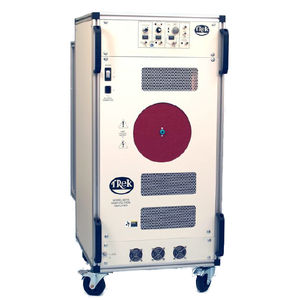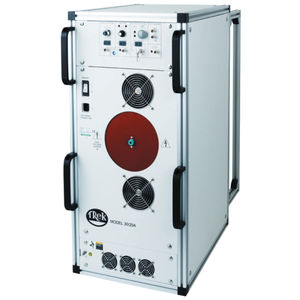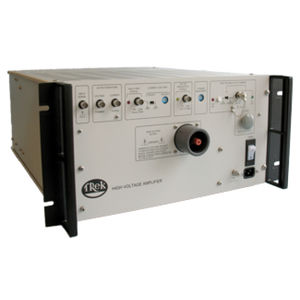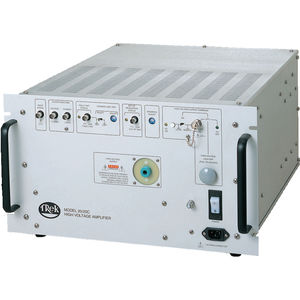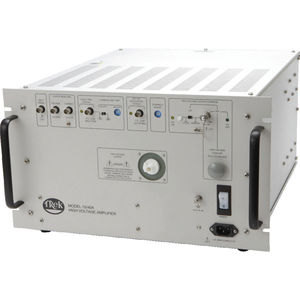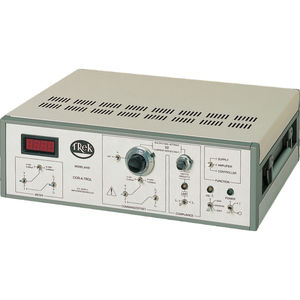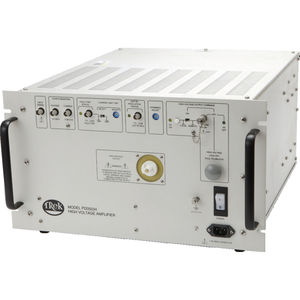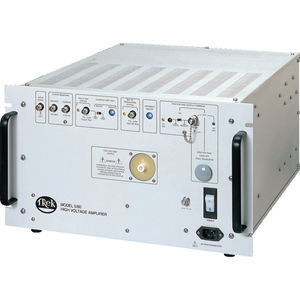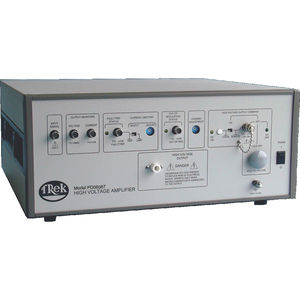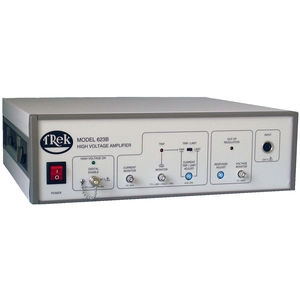
Power amplifier 609E-6differentialDChigh-voltage

Add to favorites
Compare this product
Characteristics
- Type
- power
- Secondary function
- differential
- Other characteristics
- DC, high-voltage, low-noise
- Voltage
Max.: 4 kV
Min.: 0 kV
- Current
Max.: 20 mA
Min.: 0 mA
Description
The Model 609E-6 is a DC-stable, high-voltage power amplifier used in industrial and research applications. It features an all solid- state design for high slew rate, wide bandwidth and low noise operation. The four-quadrant, active output stage sinks or sources current into reactive or resistive loads throughout the output voltage range. This type of output is essential to achieve an accurate output response and high slew rate demanded by a variety of loads such as highly capacitive or reactive loads. It is configured as a non-inverting amplifier, an inverting amplifier or as a differential amplifier. Different input configurations can be wired into the unit.
Key Specifications
Output Voltage: 0 to ±4 kV DC or peak AC
Output Current: 0 to ±20 mA DC or peak AC
Slew Rate: Greater than 150 V/μs
Large Signal Bandwidth: DC to greater than 13 kHz (-3dB)
DC Voltage Gain: 1000 V/V
Applications
AC or DC biasing
atmospheric plasma
dielectric barrier discharge
electroactive polymers (EAP)
electrophoresis
electrophotography
electrorheological fluids
electrostatic deflection
electro-optic modulation
ferroelectric material characterization
ion beam steering
mass spectrometers
material poling
particle accelerators
Features and Benefits
Four-quadrant output for driving capacitive loads
Closed loop system for high accuracy
Short-circuit protected for equipment protection
DC-stable for programmable supply applications
Low output noise for ultra-accurate outputs
NIST-traceable Certificate of Calibration provided with each unit
CE compliant
Related Searches
- Signal amplifying integrated circuit
- Power amplifying integrated circuit
- DC amplifying integrated circuit
- High-voltage amplifier
- Low-noise amplifying integrated circuit
- Rack-mount amplifier
- Precision amplifying integrated circuit
- High-power amplifying integrated circuit
- Differential amplifier
- Wide-band amplifier
- Benchtop amplifier
- High-speed amplifying integrated circuit
- Piezo-electric actuator amplifier
*Prices are pre-tax. They exclude delivery charges and customs duties and do not include additional charges for installation or activation options. Prices are indicative only and may vary by country, with changes to the cost of raw materials and exchange rates.






